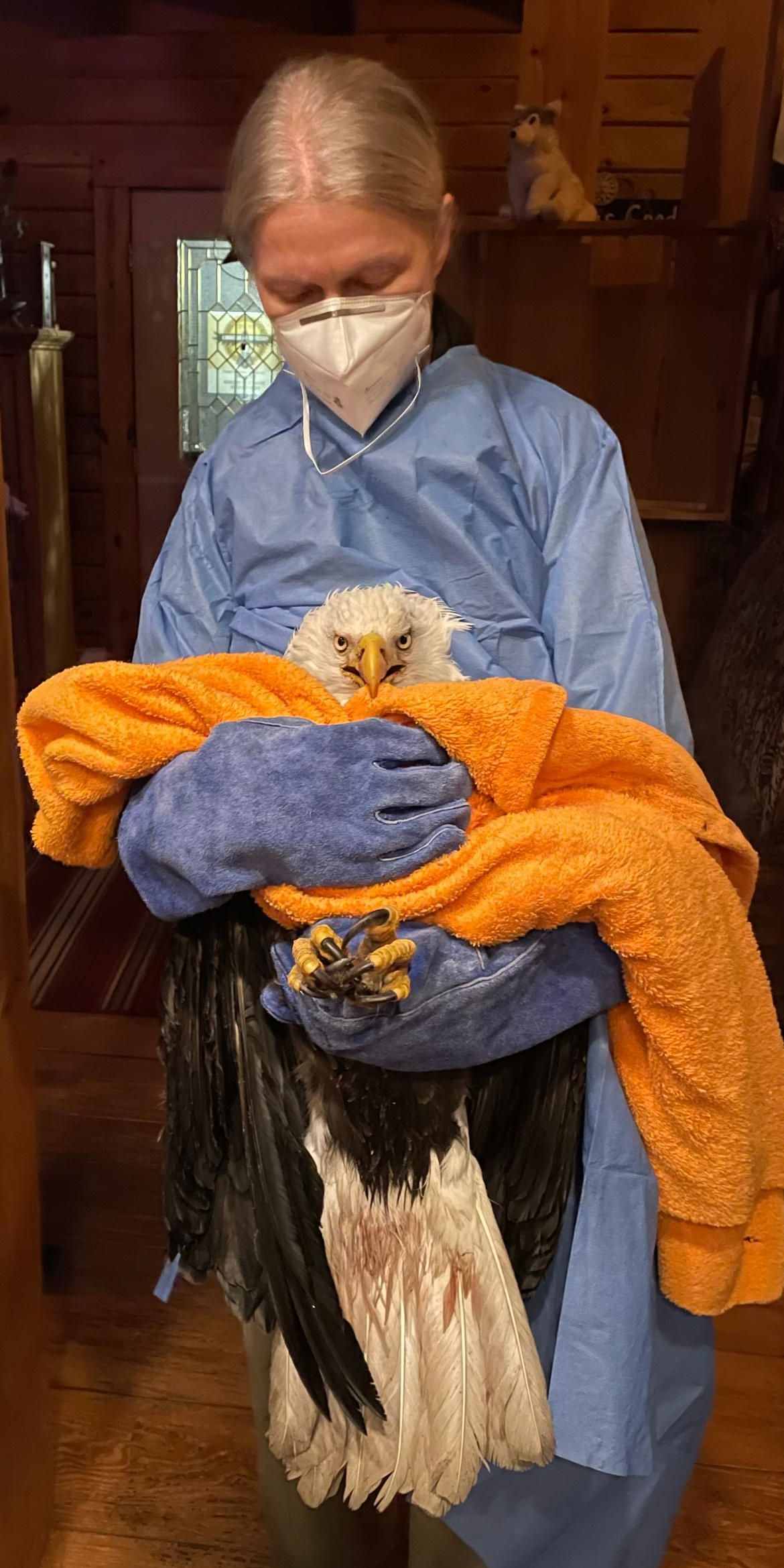Saving Birds of Prey in Connecticut
On the website of A Place Called Hope, a rehabilitation center for birds of prey in Killingworth, Connecticut, you can buy a t-shirt or bandana emblazoned with the image of a Great Horned Owl encircled by the words “Stop Poisoning Our Food – Ban Rodenticides!”
Getting rid of the first- and second-generation anticoagulant rodenticides (FGARs and SGARs) in The Nutmeg State has a passionate advocate in Christine Cummings, the co-founder of A Place Called Hope.
“Throwing poisons at rodents is just a vicious cycle,” Christine said to me recently. “Pest control companies love it because of the repeat business, but we need safer alternatives that don’t poison other animals or the environment. How many more birds of prey need to die to show that there’s a problem?”
We are pleased to announce that WISDOM Good Works will be bringing our fertility-control technology and our advocacy to Connecticut this year to further the cause of eliminating these dangerous poisons.
First, we are working with Christine to identify and launch an appropriate pilot project to demonstrate how our GoodBites fertility-control pellets are a safe, organic, and affordable alternative to reduce rodent populations.
“I think fertility control is the wave of the future,” Christine said. “I am on board with this because it is tackling the problem where it needs to be done, at the source. Plus it is making that population of rodents healthier for the food chain. It’s a no-brainer.”

Christine Cummings holds a bald eagle admitted to A Place Called Hope with symptoms of anticoagulant rodenticide poisoning. The eagle succumbed and testing showed SGARs in its system. (Photo courtesy of A Place Called Hope.)
We also plan to speak on behalf of proposed legislations that will be introduced to the Connecticut Assembly and Senate to ban rodenticides.
It is anticipated that the proposed legislation in Connecticut will be based upon the California Ecosystems Protection Acts of 2020 and 2023, which restrict the use of SGARs and the FGAR diphacinone. We are proud that we helped advocate for both of these laws.
In Connecticut, two previous attempts to introduce rodenticide bans were not successful, but Christine is hopeful the third time will be the charm.
A Place Called Hope is not only advocating for the law, they’ve undertaken extraordinary – and expensive – steps to show how prevalent secondary rodenticide poisonings are.
The facility has sent in 70 specimens of birds with suspected rodenticide poisoning for testing. First the animals go to the University of Connecticut for necropsy, then a sample of the liver is sent to Michigan State University to analyze what was in the bird’s system. Of the 70 specimens A Place Called Hope has had tested, 59 have had one or more SGARs in its system.
“We’re going to stop at 100, because at this point the results are just redundant,” Christine said. The testing costs between $165 and $185 per animal (almost all are birds, although A Place Called Hope has also received mammals like weasels and a fox with suspected rodenticide poisoning.)
The Connecticut legislative session will begin on February 7th. Once a bill is introduced, we will give you an update on the status and information on how you can help advocate for this important piece of legislation.
We’ll also keep you apprised of our pilot program in Connecticut as well as our efforts around the globe to transform the way we deal with animal overpopulation by replacing dangerous poisons with humane fertility-control technology.

A Peregrine falcon, rehabilitated and released by A Place Called Hope. The bird of prey rehabilitation facility is lobbying to ban rodenticides in Connecticut, which often endanger birds of prey and other animals. (Photo courtesy of Todd Secki).


